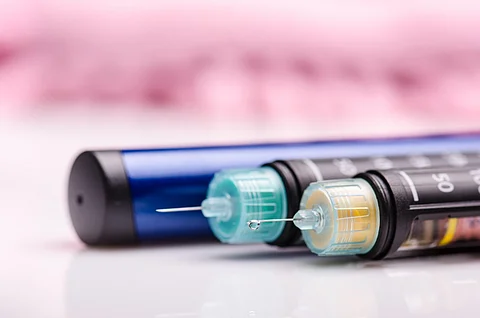TUESDAY, June 18, 2024 (HealthDay News) -- Combining antiobesity medications enhances preoperative weight loss in individuals with high body mass index (BMI) preparing for metabolic surgery, according to a study presented at the annual meeting of the American Society for Metabolic and Bariatric Surgery, held from June 9 to 13 in San Diego.
Michael Kachmar, D.O., from the Pennington Biomedical Research Center in Baton Rouge, Louisiana, and colleagues characterized the success of preoperative weight-loss therapy among patients with high BMI (≥70 kg/m2) preparing for metabolic surgery. The analysis included 113 patients.
The researchers found that length of treatment ranged from 2.7 to 364 weeks, with an average time of 72.9 days. For nonpharmacologic medically supervised weight loss, the mean percent total body weight loss (%TBWL) was 5.95 percent; %TBWL was 8.14 percent for mono-glucagon-like peptide 1 and 13.1 percent for multimodal antiobesity medication. Mean absolute BMI reductions were 7.36, 7.51, and 9.61 kg/m2, respectively. Both %TBWL and absolute BMI reduction were highest for those treated with multimodal antiobesity medication therapy for 23 to 51 weeks.
"Combining antiobesity medications may achieve much greater presurgery weight loss than other methods for those with extreme obesity," coauthor Phil Schauer, M.D., also from Pennington Biomedical, said in a statement. "Many patients who would otherwise be considered 'too sick for surgery' may now qualify."
Press Release
More Information


